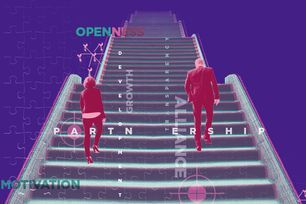We need to talk about bias
Let’s find ways to turn it to our advantage, says Andrea Brewster.

If you’ve never come across a BAME pilot or a female surgeon, your brain sounds alarm bells when you do. Something feels wrong; it doesn’t fit the patterns you’re used to. You’ve instinctively lost confidence.
This “unconscious bias” is a natural human reaction, but it has a profound impact on the diversity of the world we live and work in, not least because it’s self-perpetuating. We expect to experience – and therefore feel comfortable with – things we’ve experienced before. The more we see something, the more “normal” it seems.
So, if we rarely encounter BAME IP professionals, we’re unconsciously more wary of the ones we do meet. When we’re recruiting, therefore, a BAME candidate will have to work harder to reassure us. And because we’re less likely to recruit them, there remain fewer of them, so the problem continues.
It can be difficult to overcome these biases, but it’s not impossible. Clearly, visibility is key – for women, for BAME people, for disabled people, and for any underrepresented group. We need to create new patterns and new stereotypes for our brains to recognise and accept. We have to normalise the non-white face on the podium, the wheelchair in the meeting room, the female voice at the microphone. Only then can we put a stop to our unconscious alarm response.
Every extra BAME person that we employ and promote is one more role model for other BAME professionals, one more ambassador to attract new BAME people in, and, importantly, one more defence against our unconscious biases.
There is plenty we can do to help. For example:
- Acknowledge the potential for bias. Unconscious bias and allyship training should be a must for all professionals in all roles and at all levels. This is not just for the “evil” people. You don’t do unconscious bias training because you are racist. You do it because you’re not, and because you don’t want to be.
- Make all decisions as objective as possible. Use agreed job specifications and score cards for all interviews. Review name-blind CVs at the sifting stage. Ensure diverse teams make the key decisions. We must challenge ourselves and others when making “gut feel” responses.
- Incorporate “diversity by design” at the beginning of all decision-making processes. Deliberately select diverse working groups and speaker panels. Require recruiters to send a diverse selection of candidates, and suppliers to field diverse teams.
- “Prime” your decisions. Before you start interviewing, show yourself pictures of BAME IP professionals, read about their work and think about that inspiring BAME speaker you heard at an IP conference. Then, when you see a BAME candidate, they will be more like the “normal” that your brain is expecting.
That last suggestion actually turns unconscious bias to our advantage. It’s a way of making our instincts more favourable to things that they might otherwise have feared or dismissed.
These simple improvements could make a huge difference to people in all underrepresented groups, not just BAME professionals. We need to redefine and redistribute our patterns of normality. The more diversity we see around us, the more confident our response to it will be.
More CITMA Review features:
Trading up
The biggest brands often see African markets as a major prize. But well-known names should proceed with care, warns Chinwe Ogban
A collector’s item
Dewdney Drew shares lessons from his experience of enforcing costs awards.
Open for business
A recent boost to social mobility in IP may have come from an unexpected quarter.
Would you do a tour of duty?
Aligning the employee’s aims with the firm’s can lead to stronger alliances.





